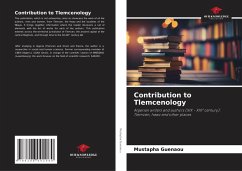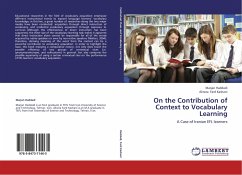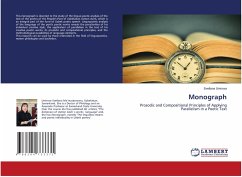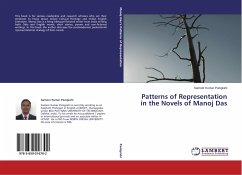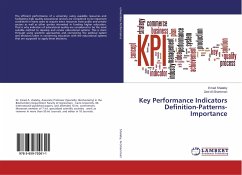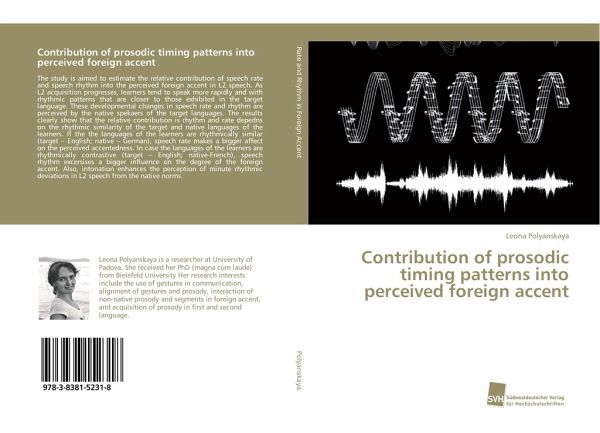
Contribution of prosodic timing patterns into perceived foreign accent
Versandkostenfrei!
Versandfertig in 6-10 Tagen
34,99 €
inkl. MwSt.

PAYBACK Punkte
17 °P sammeln!
The study is aimed to estimate the relative contribution of speech rate and speech rhythm into the perceived foreign accent in L2 speech. As L2 acquisition progresses, learners tend to speak more rapidly and with rhythmic patterns that are closer to those exhibited in the target language. These developmental changes in speech rate and rhythm are perceived by the native spekaers of the target languages. The results clearly show that the relative contribution is rhythm and rate depedns on the rhythmic similarity of the target and native languages of the learners. If the the languages of the lear...
The study is aimed to estimate the relative contribution of speech rate and speech rhythm into the perceived foreign accent in L2 speech. As L2 acquisition progresses, learners tend to speak more rapidly and with rhythmic patterns that are closer to those exhibited in the target language. These developmental changes in speech rate and rhythm are perceived by the native spekaers of the target languages. The results clearly show that the relative contribution is rhythm and rate depedns on the rhythmic similarity of the target and native languages of the learners. If the the languages of the learners are rhythmically similar (target - English; native - German), speech rate makes a bigger affect on the perceived accentedness. In case the languages of the learners are rhythmically contrastive (target - English; native-French), speech rhythm excersises a bigger influence on the degree of the foreign accent. Also, intonation enhances the perception of minute rhythmic deviations in L2 speech from the native norms.



